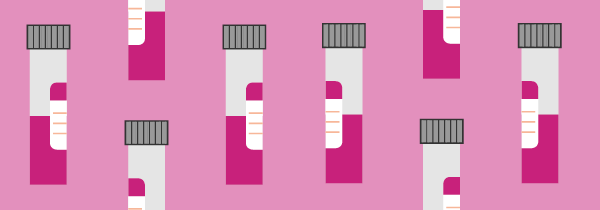Thrush (Candida)
Thrush is a very common infection caused by yeasts, known as candida, which usually lives harmlessly on the skin and in the mouth, gut and vagina. Thrush is not usually transmitted sexually, but having sex can irritate the vagina and make symptoms more obvious.
How do I know that I have it?
Usually it causes no problems, but it can cause uncomfortable symptoms. Thrush can affect the vagina, mouth or head of the penis.
Most women will have an episode of thrush at least once in their lifetime. For a small group of women, troublesome, recurrent thrush can occur for no apparent reason.
Symptoms of thrush include:
- Itching, soreness and swelling around the genital area
- A thick, white discharge
- Burning discomfort during sex
- Pain when peeing.
What can trigger it off?
Factors include:
- Taking antibiotics (some women develop thrush after taking antibiotics and some other medications e.g. steroids or immunosuppressants)
- Using a vaginal deodorant or perfumed bubble bath
- Using perfumed fabric softener
- Using baby or alcohol wipes on the genital skin
- Broken skin which is inflamed and irritated
- Wearing nylon underwear or tight-fitting trousers (a moist, warm environment helps the yeast to flourish)
- Pregnancy
- Diabetes.
Thrush can also affect men, particularly those who are not circumcised or those who have diabetes.
How is thrush treated?
If you think that you may have thrush, speak to your doctor, nurse who can offer treatment on the basis of your symptoms. The treatments can be given by your doctor or bought over the counter from the pharmacy.
Some treatments will contain two different types of treatment (such as cream and pessary).If you are not sure that you have thrush please get checked out as skin conditions and herpes can cause similar symptoms.
If thrush recurs frequently or doesn’t clear up after treatment you should have a further check to confirm diagnosis.
Treatments include;
- A vaginal pessary or cream. A pessary is an anti-thrush medication that you insert. You cannot feel the pessary after it has been inserted and it works inside the vagina to clear the thrush.
- An anti-thrush cream to treat candida on the external genital skin.
- Anti-thrush tablets to be taken by mouth.
Please tell the doctor or nurse if you are pregnant or think you might be, or if you are breastfeeding as this may affect the type of treatment you are given. Ask your doctor, nurse or pharmacist for advice.
How can I be tested for thrush?
If you do not have any symptoms you do not need a test for thrush. The doctor/nurse may be able to confirm you have thrush from your symptoms or they may take a swab to take a sample from the vagina. A swab looks a bit like a cotton bud and collecting a sample only takes a moment. A full sexual health screen will be offered to rule out any other infections.
You may be tested for diabetes if they think this could be the cause of your thrush.
Can I pass Thrush on?
No. A male partner of a woman with thrush may get some irritation on the penis after sexual contact which usually settles on its own. Sex can be painful when you have thrush so is best avoided until your symptoms have gone.
I keep getting thrush what can I do?
Some women experience repeat infections of thrush, and it is not always clear what causes this. It is important to make sure that there is not any underlying health problem like diabetes which is causing the thrush. It is useful to have a test to confirm that it is thrush that is causing the problem.
There are a number of things you can do to help reduce the likelihood of thrush:
- Avoid wearing tights, nylon underwear or tight trousers or jeans
- Avoid using perfumed soaps or bubble bath, vaginal deodorants and disinfectants
- Stop using perfumed fabric softener when washing towels and underwear
- Consider washing your body with a soap substitute (your pharmacist can advise
- Avoid using baby or alcohol wipes on your genital skin
- After going to the toilet, always wipe from the front to the back to avoid
- If you get thrush when you use antibiotics, it may be worth asking your doctor to
A recurrence is not usually due to re-infection from a partner.
For more information please see FPA - thrush bacterial vaginosis information and advice.

